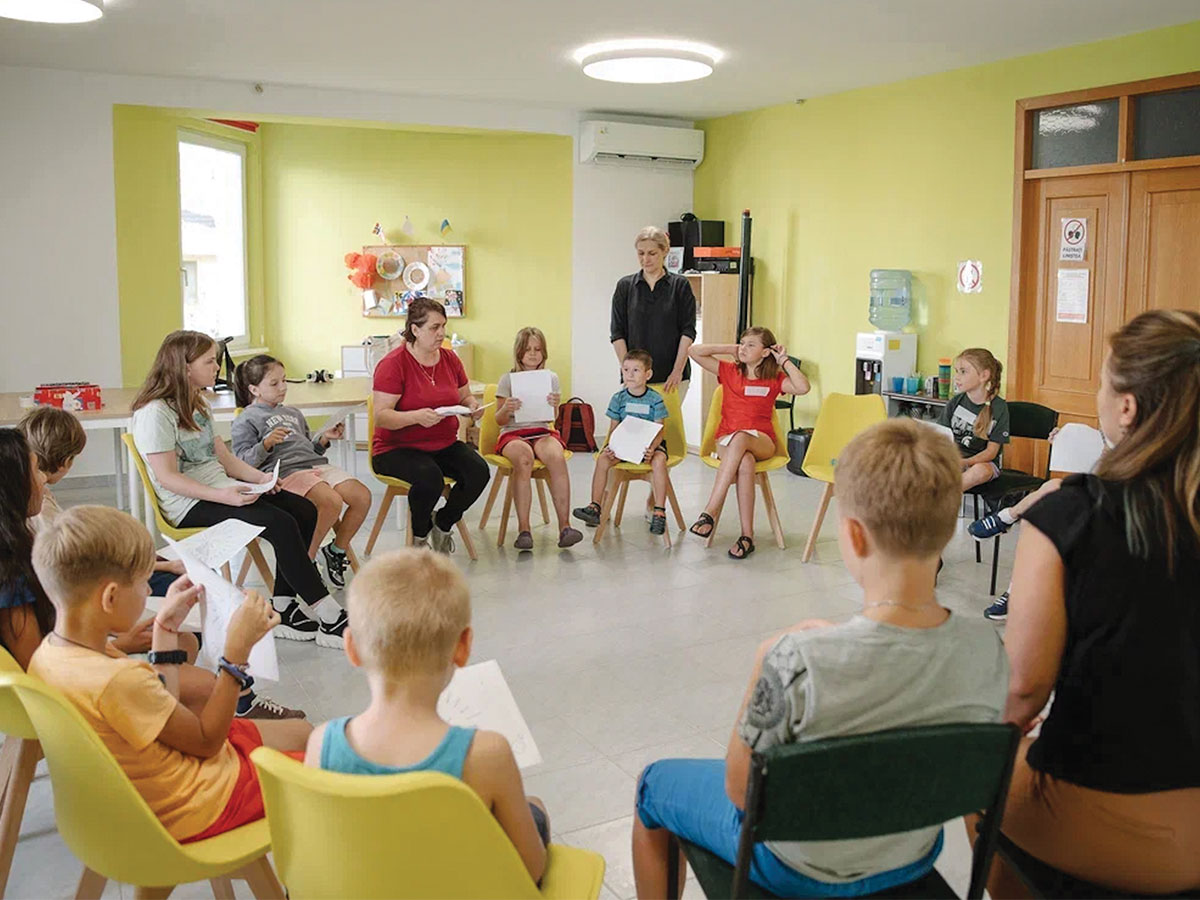Using Oral Reporting to Cultivate Trust, Care, and Possibility

Increasingly, funders are exploring and implementing alternatives to traditional narrative reporting in an effort to operationalize trust-based, relationship-centered values. Working groups and program staff are gravitating towards reduced reporting requirements to minimize administrative burdens on grantee organizations, swapping narrative reports altogether for conversational check-ins with grantees, and welcoming the reuse of reports generated for other funders to gather insights.
But many of the popular alternatives to narrative reporting come with weighty considerations about measuring impact, setting expectations, and deepening accountability. While the intention behind this shift in reporting may be to reduce burdens on grantees, philanthropy may end up replicating some of the same burdens it intends to eliminate if it isn’t considering execution carefully.
The Kataly Foundation is a family foundation that was founded in 2018 with the goal of spending out within ten to fifteen years. Our mission as a foundation is to redistribute resources to support the economic, political, and cultural power of Black and Indigenous communities, as well as all communities of color. Kataly has three program areas: the Environmental Justice Resourcing Collective, the Mindfulness and Healing Justice program, and the Restorative Economies Fund. Each program area is distinct, but all share a commitment to redistributing wealth towards power-building work so that communities have the resources, power, and agency to execute their own visions for justice, well-being, and shared prosperity.
At Kataly, one of our values is accountability, which includes accountability to our grantee partners. One component of being accountable to the organizations we resource involves designing an effective and equitable reporting process. When we took a step back to examine the existing system, we saw how the typical written reporting process was symptomatic of the problematic power dynamics that many grants administrators find themselves in. We had to ask ourselves: “Who does reporting actually benefit?” This is, in many ways, an existential question that calls out the viability of current, burdensome grantmaking processes, while calling in the people who are tasked with upholding them, i.e., my colleagues and peers in grants administration.
In addition, grants management teams must ask, “What do we do with all the data we gather from hundreds of reports or conversations?” and, “Who is served by foundations sitting atop a mountain of ill-used data?”
At Kataly, our grants management team has worked closely with each of our programs teams to arrive at a shared understanding of what a successful grantee check-in looks like. In designing the components of our grantmaking, we knew from the outset that we wanted to implement a process that
- is rooted in relationships that center the self-determination of communities;
- prioritizes responsive care and flexibility for grantees;
- comes from a place of possibility and trust;
- is asset-based, accessible, and appropriate to the unique realities of each grantee; and
- fosters the extension of trust internally to our team at Kataly.
In each step of the grantmaking process at Kataly, fostering relationships that center the self-determination of communities was key—as was having conversations with grantees that were not the oral version of a written narrative report. In collaboration with our programs teams, our grants management team unpacked what is most meaningful about an annual check-in for grantees: letting them know beforehand the key questions we want to explore, setting the expectation that check-ins will last a maximum of 20 to 30 minutes, ensuring that they are provided opportunities to engage with us in worthwhile ways. We then commit to responding to what we receive in a timely and meaningful way.

Along the way, the Kataly team has learned that, while we can set expectations, grantees sometimes want to talk through what’s top-of-mind for them for longer than a half-hour check-in, requiring us to exercise flexibility in our schedules in order to be as present as possible.
Across each of Kataly’s three program areas, in addition to asking about relevant updates on the work, we ask about an organization’s annual budget and any emerging needs within the organization and across the field. We ask about the annual budget because, as a spend-out foundation, we want to understand the budget trends for an organization year-over-year so we can best anticipate and cocreate the right-sized support to sustain grantees’ operations long after Kataly sunsets. Asking about emerging needs in the field is a way to center the expertise of grantees. It’s also a way for funders to learn necessary context for navigating the ecosystems we seek to support with sensitivity to both the pain points and the possibilities.
Although reviewing a high volume of insights from these conversations can feel overwhelming, this is also the time when we get to turn insights into actions. Collecting qualitative as well as quantitative data presents the opportunity to synthesize findings in a way that surfaces nuanced learnings. For example, in the early stages of the 2021 inflation surge, our team learned through our conversations that grantees were feeling challenged to make their hard-earned dollars stretch to meet the basic needs of their staff and community. We synthesized the qualitative data from conversations with 53 grantees in the summer of 2022, and that helped us confirm a trend about the strain of inflation. Organizations with smaller budgets shared that staff were facing financial and quality-of-life challenges while trying to run programs to support their communities. This is why, in February of 2023, Kataly awarded 135 organizations with a one-time, unrestricted $50,000 fortification award, encouraging recipients to utilize the funds to meet the quality-of-life needs of their teams.
In a time of ongoing pandemic, economic uncertainty, climate crises, racial reckoning, and backlash against bodily autonomy, movement leaders are navigating a constantly changing landscape. Their capacity needs are evolving, as are the needs and dreams of the communities they are in committed partnerships with. Consequently, asking a grantee “What do you need?” powerfully positions movement leaders to invite funders into a relationship of deeper solidarity. As funders, it’s imperative that we ask ourselves what it means to be prepared with adequate bandwidth and resources already in place to respond in a way that is as timely and effective as possible.
At Kataly, grants management and programs teams strive for consistent and clear communication, utilizing a working knowledge of each program portfolio, as well as knowledge across portfolios, to foster rapid and effective collaboration. This requires us to reciprocate trust across the organization, knowing that we are all coming from a place of wanting to work together to best honor the needs and goals uplifted by grantees. When we are able to extend this trust internally, grantees and communities feel the ripple effect, creating the potential for more genuine relationships with Kataly.
The question of how to measure impact when utilizing a qualitative, relationship-centered reporting format comes up often in wider conversations around trust-based philanthropic practices. I believe Kataly’s impact is measured by the ways in which our grantee partners thrive. This means understanding that most of the story we participate in with grantee organizations and communities is not actually ours to tell. While Kataly is consistently poised to meet the challenges grantees face, the real story of impact comes from the successes that transpire as a result of our willingness to follow insights with actions. It’s essential that communities and movement groups have control over the narrative of their own impact, rather than funders centering themselves in the story. When we sit down with a grantee partner who shares their wins, the opportunity to celebrate with them in that moment is deeply human, authentic, and immeasurable.
Image: The leaders of the Environmental Justice Resourcing Collective gather for a retreat in 2022. Photo by Yarilou and Danciel Rivera, courtesy of Kataly Foundation



